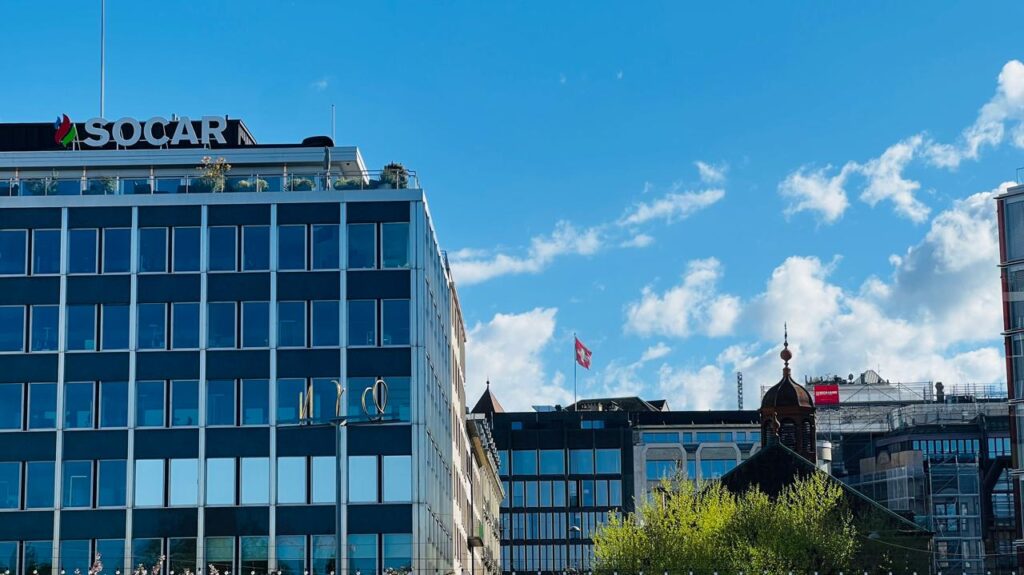Highlight 38/2025: Azerbaijan’s Strategic Role in Ensuring Europe’s Energy Security: A Reliable Partner in Times of Crisis?
Ilyas Babayev, 10 September 2025

As the European Union (EU) intensifies efforts to diversify its energy sources and reduce reliance on Russian gas, Azerbaijan has emerged as a critical energy partner in the region. Through its strategic geographic position and significant natural gas reserves, Azerbaijan contributes to Europe’s long-term energy resilience, particularly via the Southern Gas Corridor (SGC).
The SGC, a 3,500-kilometre pipeline system stretching from the Caspian Sea to Southern Europe, delivers Azerbaijani gas from the Shah Deniz field to countries like Italy, Greece, and Bulgaria. Officially inaugurated in 2020, the SGC consists of three major pipeline segments: the South Caucasus Pipeline (SCP), the Trans-Anatolian Pipeline (TANAP), and the Trans Adriatic Pipeline (TAP). It is regarded as one of Europe’s most complex and ambitious energy infrastructure projects of the past two decades.
BP, as the operator of the Shah Deniz field, along with other international energy giants and regional stakeholders, played a significant role in financing and constructing this corridor. The successful realization of the SGC demonstrates Azerbaijan’s capacity to act as both a reliable supplier and a facilitator of regional cooperation.
Its launch was a milestone in EU–Azerbaijan relations and supports the EU’s energy diversification strategy, especially following the 2022 energy crisis triggered by the war in Ukraine. According to the European Commission, Azerbaijani gas supplies are expected to double by 2027 under a new strategic energy partnership.
Beyond infrastructure, Azerbaijan’s consistent commitment to supply contracts, investment in green energy transition (especially solar and wind), and its central role in regional cooperation frameworks like the Baku Initiative further solidify its energy diplomacy credentials. The country is also a reliable actor within OPEC+ (Organization of the Petroleum Exporting Countries Plus), balancing traditional energy markets while advancing its own economic development.
As the host of COP29 in 2024, Azerbaijan has reaffirmed its dedication to sustainability by positioning itself as a regional leader in climate and energy diplomacy. It is actively working to transform into a green energy hub, especially by leveraging wind and solar capacity in its liberated territories in Karabakh and East Zangazur. These initiatives are aligned with UNECE’s Sustainable Energy agenda, with which Azerbaijan has maintained close cooperation.
Another critical dimension is regional stability. Azerbaijan’s energy infrastructure passes through geopolitically sensitive areas. Maintaining peace and fostering cooperation in the South Caucasus is not only a national priority but also a strategic requirement for European energy security. The completion of new transit routes, such as the Zangezur Corridor, is expected to further enhance connectivity and reinforce Azerbaijan’s role as a key transit country.
From a diplomatic perspective, Azerbaijan’s engagement with the UNECE Sustainable Energy Division strengthens policy dialogue on energy security, innovation, and decarbonization. These interactions foster not only energy cooperation but also knowledge sharing, regulation harmonization, and sustainable development planning.
In sum, Azerbaijan’s balanced energy policy—anchored in strategic geography, infrastructure investment, and multilateral diplomacy—positions it as a reliable and forward-looking partner in Europe’s energy transition. Its ability to align national interests with regional needs makes it a pivotal player in shaping a more resilient and diversified energy future for the continent.
Ilyas Babayev, Highlight 38/2025: Azerbaijan’s Strategic Role in Ensuring Europe’s Energy Security: A Reliable Partner in Times of Crisis?, 10 September 2025, available at www.meig.ch
The views expressed in the MEIG Highlights are personal to the authors and neither reflect the positions of the MEIG Programme nor those of the University of Geneva.
